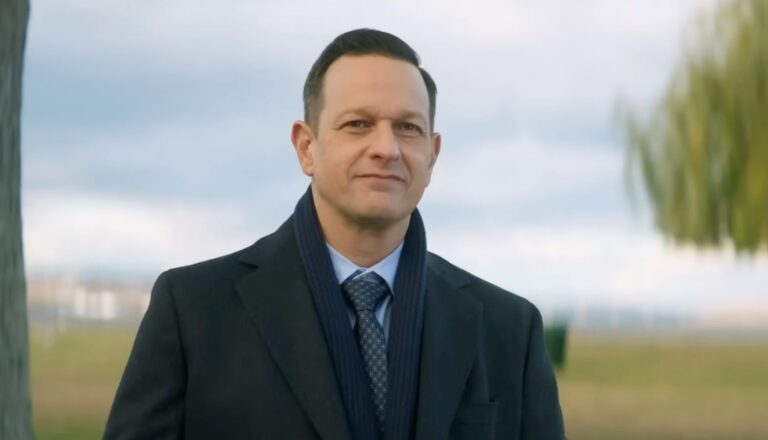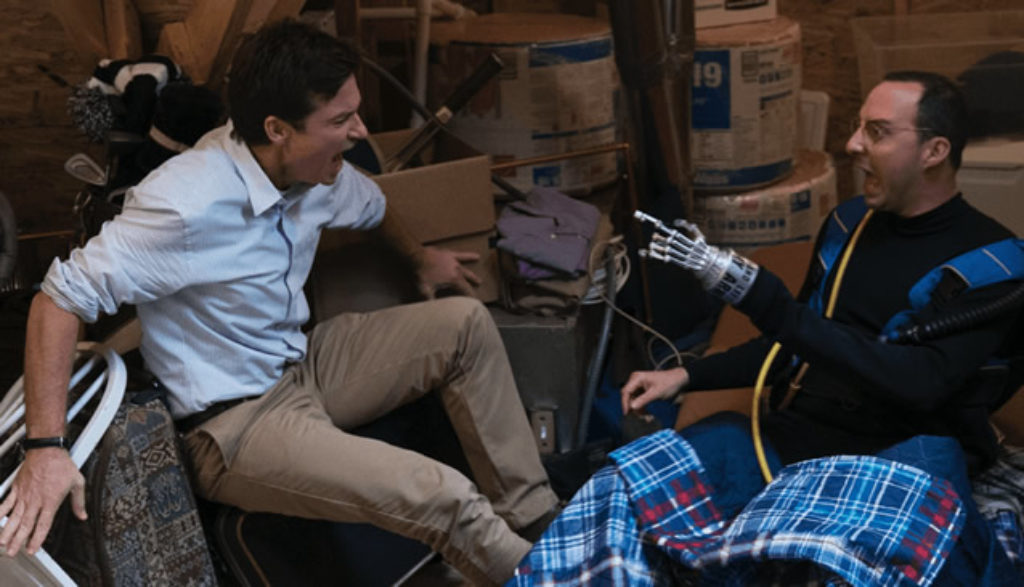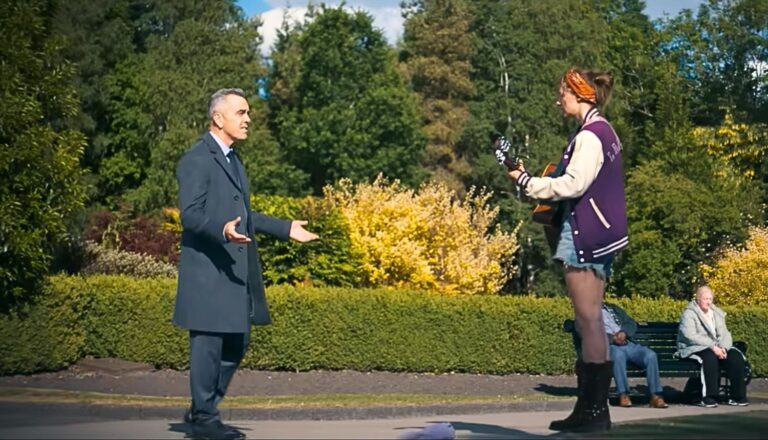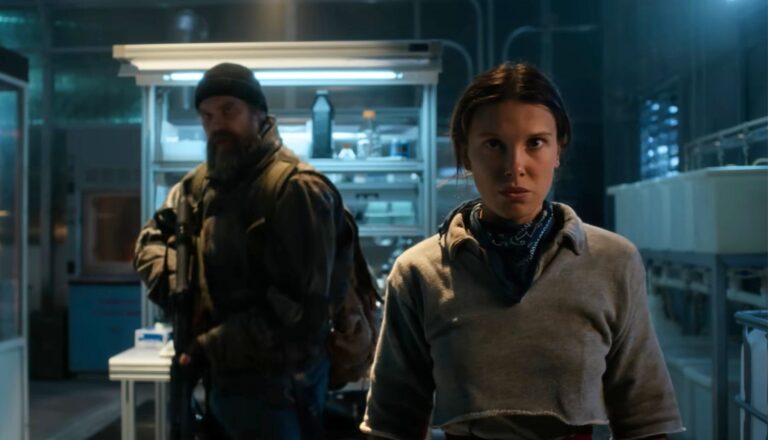
Best Medicine
In Fox’s Best Medicine, uptight city surgeon Dr. Martin Best moves to small-town Port Wenn and learns to get along with its quirky residents.

In 2003, Fox first rolled out a clever, quirky and crass sitcom called Arrested Development. Produced and narrated by Ron Howard, It eschewed laugh tracks, studio audiences and two-beat punch lines, and instead embraced handheld cameras, smart dialogue, and convoluted, envelope-pushing plot lines—making it unlike everything else on television at the time. (Scrubs may have been the closest comparison point.) Critics loved it … and no one else watched it. So after three seasons, six Emmys and countless snooze-worthy ratings, Fox arrested the sitcom’s development and moved on.
But in Hollywood—the land of reboots, re-imaginings and a legion of zombie movies—nothing ever truly dies. Not if there’s money to be made. The show continued to land on critics’ “Top Television Shows of All Time” lists. New fans discovered old episodes on DVD. Soon, entertainment journalists were reporting noises from the Arrested Development gravesite.
Might Fox bring it back? Could the characters find new life in a movie?
No. And no. When Arrested Development finally lurched out of its tomb—with Howard and the entire original cast amazingly intact—it shambled over to Netflix.
And it’s just as crazy, confusing and problematic as ever. And some of those problems aren’t even on-screen.
After the original Arrested Development folded on Fox, Jeffrey Tambor—who played George Bluth Sr., the rotten-to-the-core patriarch of the show’s deeply dysfunctional Bluth clan—landed the lead role in Amazon’s of-the-moment comedy Transparent. Over the course of four seasons, Tambor’s portrayal of a trans father on that show won two Emmys. But in late 2017, Tambor was accused of sexual harassment and was officially fired from the show a few months later.
Netflix didn’t follow Amazon’s lead, however, and it kept Tambor on for the second season of Arrested Development. But during the promotional lead-up to the show, Tambor (who denies the sexual harassment charges) admitted that he had behaved unprofessionally with Jessica Walter, who plays his wife, Lucille, on that show. (That unprofessionalism wasn’t sexual in nature but was, all parties admit, abusive.) During a bizarre interview with The New York Times, the show’s male co-stars, especially Jason Bateman, seemed to defend Tambor’s off-screen behavior.
“Again, not to belittle it or excuse it or anything, but in the entertainment industry it is incredibly common to have people who are, in quotes, ‘difficult,'” Bateman told the Times. “And when you’re in a privileged position to hire people, or have an influence in who does get hired, you make phone calls. And you say, ‘Hey, so I’ve heard X about person Y, tell me about that.’ And what you learn is context. And you learn about character and you learn about work habits, work ethics, and you start to understand. Because it’s a very amorphous process, this sort of [expletive] that we do, you know, making up fake life. It’s a weird thing, and it is a breeding ground for atypical behavior and certain people have certain processes.”
The ensuing backlash forced Bateman to apologize profusely on Twitter, further overshadowing the new season.
For those who need a quick recap of the show itself … well, forget it. The antics are just too convoluted.
It all sounds so simple at its core—or was back in its Fox days: A riches-to-rags story in which the once powerful Bluth family is humbled after paterfamilias George Bluth Sr. gets busted for fraud and embezzlement. Michael, George’s underappreciated middle son, does his best to keep the family together and out of the poor house (and, often, jail).
But underneath that central plot lies a psychedelic stew of crazy characters and outlandish situations, including: George Sr. escapes from prison and sends his hippy twin brother to the clink in his stead. Youngest son Buster does a stint in the army—cut short when a seal bites off his hand. Daughter Lindsay attempts (and fails) to procure a lover in the midst of her open marriage. Lindsay’s husband, Tobias, masquerades as a British nanny (Mrs. Featherbottom) and desperately tries to join the Blue Man Group. Eldest son Gob has an association with the male stripper group Hot Cops. Grandson George Michael develops an ongoing infatuation with his sorta-cousin, Maeby.
And, really, that’s just the cheese-stick appetizer. We haven’t even talked about the Bluths’ adopted Korean son, Annyong, or Lucille Two or any number of ridiculous tangents the show scampers down. Or the fact that as Season 5 opens, Michael and his son, George Michael, are both in a relationship with Rebel Alley, the fictional daughter of the show’s real-life narrator, Ron Howard. Or that liberal Lindsay is running for Congress on a platform to “build a wall” between the U.S. and Mexico. Or that George Sr. briefly dresses as a woman (as, you’ll recall, Tambor did for Transparent) while Howard intones, “His impression of a woman wasn’t going to win him many awards …”
A few constants remain: The Bluths are still a financial and familial mess. They’re still scheming and plotting and cheating and embarrassing Michael at every turn. And it’s just as impossible to make real sense of the onscreen shenanigans without regular (nay, religious) watching as it ever was. Even reviewing it, I felt like I could’ve used some sort of SparkNotes guide. To get it, you have to watch.
But is it worth getting?
What Plugged In’s Steven Isaac said about the series in 2003 is still accurate today:
“At its best, Ron Howard’s pet project uses social satire and reverse logic to show the downsides of emotional sabotage, greed, lying and mean-spirited manipulation. At its worst, it sneeringly fixates on sexual attraction between young cousins, homosexual ‘misunderstandings’ … bitter acts of revenge, irreverent gags and obscene rants.”
It’s called Arrested Development—a title that could well refer to most of the childish characters it showcases. But it also sums up the whole show. Not only have the characters been stuck for 15 years in their sorry states of dysfunction, but the program has too. It’s still funny. It’s still foul. It’s remarkably free of any redeeming content. Again quoting Isaac, “That’s hardly good news for families looking for big clean laughs on the small screen.”
(Editor’s Note: Plugged In is rarely able to watch every episode of a given series for review. As such, there’s always a chance that you might see a problem that we didn’t. If you notice content that you feel should be included in our review, send us an email at letters@pluggedin.com, or contact us via Facebook or Instagram, and be sure to let us know the episode number, title and season so that we can check it out.)
Michael and son George Michael realize they’re dating the same woman, Rebel. George Michael punches his dad in the nose when he learns of that fact, and he immediately regrets it. Gob and George Sr. run into each other in a Mexican drug store and decide they’re going to have sex with the entire nation of Mexico. (This despite the fact that George Sr. apparently has very little in the way of testosterone.) Other things happen, too.
George Sr. and Gob talk about buying pills meant to treat erectile dysfunction (using far more crass language). Michael seems to interrupt a possible intimate liaison between Gob and a guy named Tony Wonder. Lindsay and a conservative politician make out. We hear that Maeby, George Michael’s cousin/love interest, had a relationship with a “teenager pretending to be an undercover cop pretending to be a teenager.” It’s suggested that Michael has sex with someone for money. That someone disappears: Her apartment is filled with lingerie and sex toys (some of them obscured via pixilation), and Maeby mistakes a traditional landline receiver for an S&M-related device. She encourages a real maid there to dress up in a skimpy French maid’s outfit: The maid walks out in said outfit with her bra straps exposed. We see Rebel begin to make out in photo booths with both Michael and George Michael. There are references to what murderers and rapists would do to each other if they were all on an island together.
In flashback, we see two of Michael’s abortive attempts to introduce George Michael, as a child, to the wonders of SCUBA diving. (George Michael faints both times.) Michael discovers younger brother Buster hiding in his attic dressed in one of George Michael’s old SCUBA suits, apparently hoping to weather the home’s insect fumigation. (He latches his robotic hand on Michael’s when Michael tries to get him to leave, causing considerable pain.) A politician is knocked out. In flashback, a postman dies.
Someone’s vanity plate reads “ANUSTART,” which was meant to translate into “a new start,” but which can be (and is) read in another way. Characters apparently say two f-words and one s-word (both words are bleeped by Netflix), along with one use of the word “h—” and four misuses of God’s name. Gob tries to buy “forgetting” pills.
After his solo business venture goes awry, Michael moves into his son’s dorm room, often asking for help with passwords, computers and his smartphone calendar. “It’s, like, stuck in 2003,” he says. But his dad’s presence cramps George Michael’s style, and George Michael votes him out of the dorm. Michael leaves and tells Lucille Two (who has had affairs with many of the Bluth men) that he’ll sleep with her—perhaps in exchange for her forgiving the $700,000 he owes her. (The episode suggests that he goes through with the deal.)
We see flashbacks of smooches, sexual interludes, women in scanty clothing and men in drag. George Michael still seems infatuated with sorta-cousin Maeby. References (some of them visual) are made to sex and homosexuality. Michael ogles women.
Gob takes what he calls “forget-me-now” pills (relaxants more widely known as “roofies”). Alcohol gets screen time. Bluth parents insist it’s demeaning to African-Americans to tip them. A mailman dies. Michael makes a few gestures that reference Eastern religion. Two bad words are obviously bleeped, while a third is obscured by background noise. We hear “d‑‑n” and “h‑‑‑” (once each), and a half-dozen misuses of God’s name.

Paul Asay has been part of the Plugged In staff since 2007, watching and reviewing roughly 15 quintillion movies and television shows. He’s written for a number of other publications, too, including Time, The Washington Post and Christianity Today. The author of several books, Paul loves to find spirituality in unexpected places, including popular entertainment, and he loves all things superhero. His vices include James Bond films, Mountain Dew and terrible B-grade movies. He’s married, has two children and a neurotic dog, runs marathons on occasion and hopes to someday own his own tuxedo. Feel free to follow him on Twitter @AsayPaul.

In Fox’s Best Medicine, uptight city surgeon Dr. Martin Best moves to small-town Port Wenn and learns to get along with its quirky residents.

This beloved Hallmark romantic drama about life in a small, 1900s Canadian mining town returns for its tenth season.

Since violence and crudities reign supreme in ‘Run Away,’ viewers might do well to heed the advice in the show’s title.

The newest season of Netflix’s Stranger Things continues to blend ’80s nostalgia with ever-darker spiritual content and horrific violence.